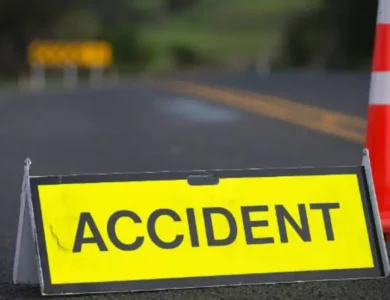US: CDC’s Bridge Access Program Ends, Leaving Millions Without Free COVID-19 Vaccines
The rollout of updated COVID-19 vaccines is set to begin in preparation for the upcoming fall and winter months, but access may be challenging for some Americans. In previous years, the Centers for Disease Control and Prevention (CDC) implemented a Bridge Access Program, a collaboration between public and private sectors, which provided free COVID-19 vaccinations to adults lacking health insurance or whose insurance did not cover the full cost of the vaccines.
However, due to cuts in federal funding, this program will conclude this month. While individuals covered by Medicare, Medicaid, or private insurance can still receive the new vaccine at no cost, an estimated 25 to 30 million uninsured adults will have to pay out of pocket for their shots.
According to ABC news, Dr. Nathaniel Hupert, an associate professor at Weill Cornell Medical College, noted the unfortunate timing of the program’s end, as the 2024-25 versions of the COVID vaccines are not yet widely available. The CDC has designated $62 million in unused vaccine contract funding for state and local health initiatives aimed at purchasing COVID vaccines for uninsured and underinsured adults, but the specifics of this allocation remain unclear.
Dr. Rebecca Weintraub, an associate professor at Harvard Medical School, emphasized that while there is unspent funding, many local health departments are financially strained and lack the reserves to cover the upfront costs of vaccines. In Mecklenburg County, North Carolina, Public Health Director Raynard Washington highlighted the challenges of acquiring enough updated vaccines for the approximately 100,000 uninsured residents aged 19 to 64.
Washington explained that even if a small percentage of these adults sought the vaccine, the financial burden would be significant, with hundreds of thousands of dollars needed that the county cannot afford. Although some COVID funds are available to assist with administrative costs, the county’s capacity to cover vaccine expenses is limited. “We plan to purchase a limited supply, but it won’t be enough,” he added.
Last year, Pfizer and Moderna projected commercial prices for their vaccines to range between $110 and $130 per dose, with potential increases this year. Many uninsured adults may find these prices prohibitive, forcing them to choose between healthcare and basic necessities.
Experts have called for the establishment of a Vaccine for Adults Program, akin to the children’s program, and suggested implementing a pharmacy discount initiative to reduce costs for low-income or uninsured individuals.
Despite the obstacles posed by the lack of no-cost vaccines, experts assert that vaccinations remain one of the most effective methods for preventing severe illness or hospitalization due to COVID-19. Washington urged all residents, particularly those with underlying health conditions or higher medical vulnerability, to consider vaccination as soon as the vaccines become available in the coming days.








